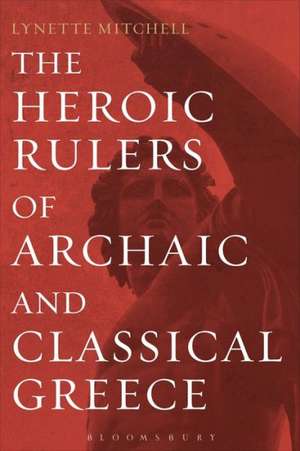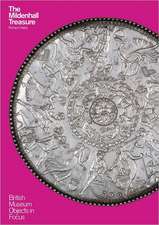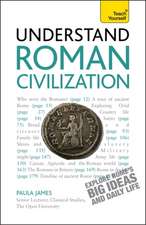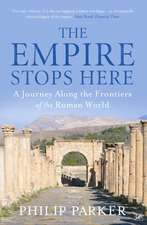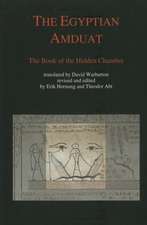The Heroic Rulers of Archaic and Classical Greece
Autor Lynette Mitchellen Limba Engleză Paperback – 31 iul 2013
| Toate formatele și edițiile | Preț | Express |
|---|---|---|
| Paperback (1) | 178.65 lei 6-8 săpt. | |
| Bloomsbury Publishing – 31 iul 2013 | 178.65 lei 6-8 săpt. | |
| Hardback (1) | 772.58 lei 6-8 săpt. | |
| Bloomsbury Publishing – 31 iul 2013 | 772.58 lei 6-8 săpt. |
Preț: 178.65 lei
Preț vechi: 207.51 lei
-14% Nou
Puncte Express: 268
Preț estimativ în valută:
34.19€ • 35.76$ • 28.40£
34.19€ • 35.76$ • 28.40£
Carte tipărită la comandă
Livrare economică 03-17 aprilie
Preluare comenzi: 021 569.72.76
Specificații
ISBN-13: 9781472510679
ISBN-10: 1472510674
Pagini: 224
Dimensiuni: 156 x 234 x 13 mm
Greutate: 0.34 kg
Editura: Bloomsbury Publishing
Colecția Bloomsbury Academic
Locul publicării:London, United Kingdom
ISBN-10: 1472510674
Pagini: 224
Dimensiuni: 156 x 234 x 13 mm
Greutate: 0.34 kg
Editura: Bloomsbury Publishing
Colecția Bloomsbury Academic
Locul publicării:London, United Kingdom
Caracteristici
Argues that there was a common heroic ideology of ruling, breaking down traditional distinctions between hereditary rule and assumed power.
Notă biografică
Lynette Mitchell is Professor of Greek History and Politics at the University of Exeter, UK. Her books include Greeks Bearing Gifts (1997) and Panhellenism and the Barbarian in Archaic and Classical Greece (2007).
Cuprins
IntroductionChapter One: Basileia and tyrannis: exploding mythChapter Two: Arete and the right to ruleChapter Three: Ruling FamiliesChapter Four: Rulers in the polisChapter Five: Epilogue: Athens, ruling and areteBibliographyIndex
Recenzii
In this slim volume, Mitchell draws upon an impressive range of evidence in a series of focussed arguments intended to significantly revise our understanding of kingship in the Greek world - predominantly in the archaic and classical periods.
Lynette Mitchell's lucidly written and discerningly argued book ... [is] supplied with an impressive bibliography (more than 500 entries) which in itself is a reward for the reader ... The book is full of ideas, sometimes unorthodox, and very often thought-provoking ... Not the least merit of the book is that it stimulates further debate on the relationship between rulers and elites as well as on the cultural strategies deployed by rulers to strengthen their power.
In the space of five very accessible chapters ... Mitchell turns a lot of modern scholarship on its head. ... [She] has gone further than her predecessors in laying bare the power relations of rulers, their families, and the ruled throughout Ancient Greek history.
Against this complex background, the agile book of Mitchell appears to be well-centered, coherent and not devoid of original results ... The Heroic Rulers of Archaic and Classical Greece is a book worthy of consideration. This is a vigorous invitation to re-examine certain common premises concerning rulership in ancient Greece.
In this crisply written and pleasingly accessible study, Professor Lynette Mitchell has caught a rich haul of personal and charismatic rulers of Greek states and peoples from Archaic to Hellenistic times. She detects a common ideological basis for their diverse regimes in claims to heroic heritage and values, and argues persuasively that monarchical but not absolutist modes of rule remained central to Greek political experience from Homer's Agamemnon to Aristotle's Alexander and beyond.
In our fascination with the Greeks as inventors of republican and democratic government, we tend to forget that many Greek cities and states were ruled by monarchs for much of the time. Lynette Mitchell's brisk and confident survey shows that a wide variety of rulers from archaic tyrants to Macedonian and Molossian kings represents variations of a 'charismatic', family-based form of monarchical leadership that was characteristic of the archaic and classical Greek world and arose out of the same climate of 'competitive egalitarianism' that also gave rise to republics. This is a refreshing and important new perspective on Greek political history.
An impressive and groundbreaking treatment of the topic: Lynette Mitchell has undertaken a bold attempt to treat much-studied issues from a fresh perspective.
Lynette Mitchell's lucidly written and discerningly argued book ... [is] supplied with an impressive bibliography (more than 500 entries) which in itself is a reward for the reader ... The book is full of ideas, sometimes unorthodox, and very often thought-provoking ... Not the least merit of the book is that it stimulates further debate on the relationship between rulers and elites as well as on the cultural strategies deployed by rulers to strengthen their power.
In the space of five very accessible chapters ... Mitchell turns a lot of modern scholarship on its head. ... [She] has gone further than her predecessors in laying bare the power relations of rulers, their families, and the ruled throughout Ancient Greek history.
Against this complex background, the agile book of Mitchell appears to be well-centered, coherent and not devoid of original results ... The Heroic Rulers of Archaic and Classical Greece is a book worthy of consideration. This is a vigorous invitation to re-examine certain common premises concerning rulership in ancient Greece.
In this crisply written and pleasingly accessible study, Professor Lynette Mitchell has caught a rich haul of personal and charismatic rulers of Greek states and peoples from Archaic to Hellenistic times. She detects a common ideological basis for their diverse regimes in claims to heroic heritage and values, and argues persuasively that monarchical but not absolutist modes of rule remained central to Greek political experience from Homer's Agamemnon to Aristotle's Alexander and beyond.
In our fascination with the Greeks as inventors of republican and democratic government, we tend to forget that many Greek cities and states were ruled by monarchs for much of the time. Lynette Mitchell's brisk and confident survey shows that a wide variety of rulers from archaic tyrants to Macedonian and Molossian kings represents variations of a 'charismatic', family-based form of monarchical leadership that was characteristic of the archaic and classical Greek world and arose out of the same climate of 'competitive egalitarianism' that also gave rise to republics. This is a refreshing and important new perspective on Greek political history.
An impressive and groundbreaking treatment of the topic: Lynette Mitchell has undertaken a bold attempt to treat much-studied issues from a fresh perspective.
